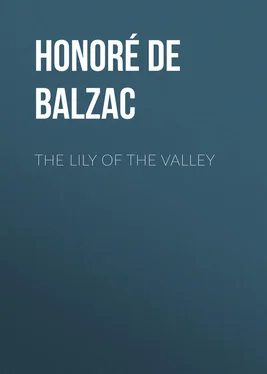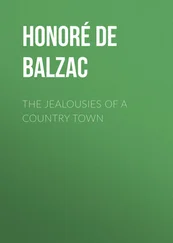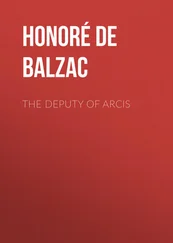Honoré Balzac - The Lily of the Valley
Здесь есть возможность читать онлайн «Honoré Balzac - The Lily of the Valley» — ознакомительный отрывок электронной книги совершенно бесплатно, а после прочтения отрывка купить полную версию. В некоторых случаях можно слушать аудио, скачать через торрент в формате fb2 и присутствует краткое содержание. Жанр: literature_19, foreign_antique, foreign_prose, на английском языке. Описание произведения, (предисловие) а так же отзывы посетителей доступны на портале библиотеки ЛибКат.
- Название:The Lily of the Valley
- Автор:
- Жанр:
- Год:неизвестен
- ISBN:нет данных
- Рейтинг книги:4 / 5. Голосов: 1
-
Избранное:Добавить в избранное
- Отзывы:
-
Ваша оценка:
- 80
- 1
- 2
- 3
- 4
- 5
The Lily of the Valley: краткое содержание, описание и аннотация
Предлагаем к чтению аннотацию, описание, краткое содержание или предисловие (зависит от того, что написал сам автор книги «The Lily of the Valley»). Если вы не нашли необходимую информацию о книге — напишите в комментариях, мы постараемся отыскать её.
The Lily of the Valley — читать онлайн ознакомительный отрывок
Ниже представлен текст книги, разбитый по страницам. Система сохранения места последней прочитанной страницы, позволяет с удобством читать онлайн бесплатно книгу «The Lily of the Valley», без необходимости каждый раз заново искать на чём Вы остановились. Поставьте закладку, и сможете в любой момент перейти на страницу, на которой закончили чтение.
Интервал:
Закладка:
That day was to be one of the most decisive of my life. After dinner we walked on the heights across a barren plain where no herbage grew; the ground was stony, arid, and without vegetable soil of any kind; nevertheless a few scrub oaks and thorny bushes straggled there, and in place of grass, a carpet of crimped mosses, illuminated by the setting sun and so dry that our feet slipped upon it. I held Madeleine by the hand to keep her up. Madame de Mortsauf was leading Jacques. The count, who was in front, suddenly turned round and striking the earth with his cane said to me in a dreadful tone: “Such is my life! – but before I knew you,” he added with a look of penitence at his wife. The reparation was tardy, for the countess had turned pale; what woman would not have staggered as she did under the blow?
“But what delightful scenes are wafted here, and what a view of the sunset!” I cried. “For my part I should like to own this barren moor; I fancy there may be treasures if we dig for them. But its greatest wealth is that of being near you. Who would not pay a great cost for such a view? – all harmony to the eye, with that winding river where the soul may bathe among the ash-trees and the alders. See the difference of taste! To you this spot of earth is a barren waste; to me, it is paradise.”
She thanked me with a look.
“Bucolics!” exclaimed the count, with a bitter look. “This is no life for a man who bears your name.” Then he suddenly changed his tone – “The bells!” he cried, “don’t you hear the bells of Azay? I hear them ringing.”
Madame de Mortsauf gave me a frightened look. Madeleine clung to my hand.
“Suppose we play a game of backgammon?” I said. “Let us go back; the rattle of the dice will drown the sound of the bells.”
We returned to Clochegourde, conversing by fits and starts. Once in the salon an indefinable uncertainty and dread took possession of us. The count flung himself into an armchair, absorbed in reverie, which his wife, who knew the symptoms of his malady and could foresee an outbreak, was careful not to interrupt. I also kept silence. As she gave me no hint to leave, perhaps she thought backgammon might divert the count’s mind and quiet those fatal nervous susceptibilities, the excitements of which were killing him. Nothing was ever harder than to make him play that game, which, however, he had a great desire to play. Like a pretty woman, he always required to be coaxed, entreated, forced, so that he might not seem the obliged person. If by chance, being interested in the conversation, I forgot to propose it, he grew sulky, bitter, insulting, and spoiled the talk by contradicting everything. If, warned by his ill-humor, I suggested a game, he would dally and demur. “In the first place, it is too late,” he would say; “besides, I don’t care for it.” Then followed a series of affectations like those of women, which often leave you in ignorance of their real wishes.
On this occasion I pretended a wild gaiety to induce him to play. He complained of giddiness which hindered him from calculating; his brain, he said, was squeezed into a vice; he heard noises, he was choking; and thereupon he sighed heavily. At last, however, he consented to the game. Madame de Mortsauf left us to put the children to bed and lead the household in family prayers. All went well during her absence; I allowed Monsieur de Mortsauf to win, and his delight seemed to put him beside himself. This sudden change from a gloom that led him to make the darkest predictions to the wild joy of a drunken man, expressed in a crazy laugh and without any adequate motive, distressed and alarmed me. I had never seen him in quite so marked a paroxysm. Our intimacy had borne fruits in the fact that he no longer restrained himself before me. Day by day he had endeavored to bring me under his tyranny, and obtain fresh food, as it were, for his evil temper; for it really seems as though moral diseases were creatures with appetites and instincts, seeking to enlarge the boundaries of their empire as a landowner seeks to increase his domain.
Presently the countess came down, and sat close to the backgammon table, apparently for better light on her embroidery, though the anxiety which led her to place her frame was ill-concealed. A piece of fatal ill-luck which I could not prevent changed the count’s face; from gaiety it fell to gloom, from purple it became yellow, and his eyes rolled. Then followed worse ill-luck, which I could neither avert nor repair. Monsieur de Mortsauf made a fatal throw which decided the game. Instantly he sprang up, flung the table at me and the lamp on the floor, struck the chimney-piece with his fist and jumped, for I cannot say he walked, about the room. The torrent of insults, imprecations, and incoherent words which rushed from his lips would have made an observer think of the old tales of satanic possession in the Middle Ages. Imagine my position!
“Go into the garden,” said the countess, pressing my hand.
I left the room before the count could notice my disappearance. On the terrace, where I slowly walked about, I heard his shouts and then his moans from the bedroom which adjoined the dining-room. Also I heard at intervals through that tempest of sound the voice of an angel, which rose like the song of a nightingale as the rain ceases. I walked about under the acacias in the loveliest night of the month of August, waiting for the countess to join me. I knew she would come; her gesture promised it. For several days an explanation seemed to float between us; a word would suffice to send it gushing from the spring, overfull, in our souls. What timidity had thus far delayed a perfect understanding between us? Perhaps she loved, as I did, these quiverings of the spirit which resembled emotions of fear and numbed the sensibilities while we held our life unuttered within us, hesitating to unveil its secrets with the modesty of the young girl before the husband she loves. An hour passed. I was sitting on the brick balustrade when the sound of her footsteps blending with the undulating ripple of her flowing gown stirred the calm air of the night. These are sensations to which the heart suffices not.
“Monsieur de Mortsauf is sleeping,” she said. “When he is thus I give him an infusion of poppies, a cup of water in which a few poppies have been steeped; the attacks are so infrequent that this simple remedy never loses its effect – Monsieur,” she continued, changing her tone and using the most persuasive inflexion of her voice, “this most unfortunate accident has revealed to you a secret which has hitherto been sedulously kept; promise me to bury the recollection of that scene. Do this for my sake, I beg of you. I don’t ask you to swear it; give me your word of honor and I shall be content.”
“Need I give it to you?” I said. “Do we not understand each other?”
“You must not judge unfavorably of Monsieur de Mortsauf; you see the effects of his many sufferings under the emigration,” she went on. “To-morrow he will entirely forget all that he has said and done; you will find him kind and excellent as ever.”
“Do not seek to excuse him, madame,” I replied. “I will do all you wish. I would fling myself into the Indre at this moment if I could restore Monsieur de Mortsauf’s health and ensure you a happy life. The only thing I cannot change is my opinion. I can give you my life, but not my convictions; I can pay no heed to what he says, but can I hinder him from saying it? No, in my opinion Monsieur de Mortsauf is – ”
“I understand you,” she said, hastily interrupting me; “you are right. The count is as nervous as a fashionable woman,” she added, as if to conceal the idea of madness by softening the word. “But he is only so at intervals, once a year, when the weather is very hot. Ah, what evils have resulted from the emigration! How many fine lives ruined! He would have been, I am sure of it, a great soldier, an honor to his country – ”
Читать дальшеИнтервал:
Закладка:
Похожие книги на «The Lily of the Valley»
Представляем Вашему вниманию похожие книги на «The Lily of the Valley» списком для выбора. Мы отобрали схожую по названию и смыслу литературу в надежде предоставить читателям больше вариантов отыскать новые, интересные, ещё непрочитанные произведения.
Обсуждение, отзывы о книге «The Lily of the Valley» и просто собственные мнения читателей. Оставьте ваши комментарии, напишите, что Вы думаете о произведении, его смысле или главных героях. Укажите что конкретно понравилось, а что нет, и почему Вы так считаете.












